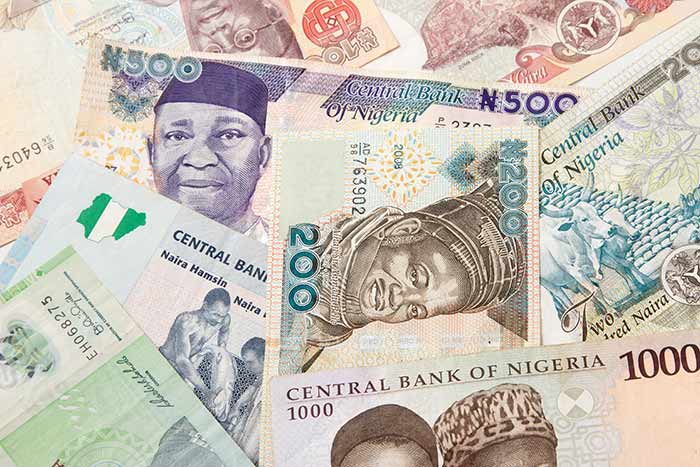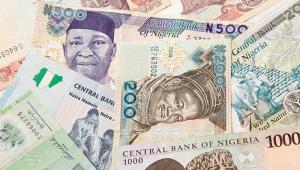web_nigeriannaira_shutterstock_200751113.jpg

Nigerian naira
The move has been interpreted as the Central Bank of Nigeria (CBN) testing the water for the possibility of a wider-scale devaluation of the naira. The announcement covers around 20% of total foreign exchange demand and will allow citizens to buy dollars at around 366 naira.
This is substantially (20%) more than the standard rate of around 305 naira to the dollar, but somewhat closes the gulf between the official and black market rate, which plummeted to 520 naira after the announcement.
Tumbling commodity prices have hit the oil-rich nation hard, and, in August last year, the economy entered its first recession in 20 years from which it is yet to emerge. Meanwhile, spiraling inflation has seen price rises for food, energy and housing.
Responding to the stubbornly low oil prices, the CBN ended the naira’s peg to the US dollar in June last year, prompting the Nigerian currency to lose a third of its value overnight.
This has led to a shortage in the supply of dollars for foreign exchange transactions, which the CBN is now attempting to address.
The news comes as Nigeria’s president Mohammadu Buhari undergoes medical treatment in London, leaving the vice-president Yemi Osinbajo, thought to be more business-friendly, in charge.
The timing of the announcement is not thought to be co-incidental. Buhari is a staunch opponent of devaluing the currency, appearing to prefer fiscal measures, such as boosting public spending, to get the economy back on track.
In his budget for 2017, Buhari announced even greater government spending than the previous record set in 2016, in an attempt to boost the economy. This budget will be part-funded by a loan from the World Bank, which Nigeria will need to implement a reform plan in order to receive.
The conditions stipulated by the World Bank are likely to include more flexibility in the foreign exchange markets.
In November last year, the African Development Bank approved the first $600m of a $1bn funding tranche aimed at helping plug the country’s $7bn budget deficit. The final $400m element is being held back until later this year, while Nigeria actions reforms over government efficiency and corruption.
In January this year, Nigeria rolled out a cash transfer scheme to boost the income of the poorest one million of its citizens by issuing regular monthly payments. The success of this plan could be threatened by currency devaluation, which may increase the price of imported goods for Nigerians.
In a statement confirming the move, a spokesperson for the Nigerian central bank, Isaac Okorafor, said: “In continuation of efforts to increase the availability of foreign exchange in order to ease the difficulties encountered by Nigerians in obtaining funds for foreign exchange transactions, the Central Bank of Nigeria is providing direct additional funding to banks to meet the needs of Nigerians for personal and business travel, medical needs, and school fees, effective immediately.”
He added that the CBN encourages “market participants to assist in ensuring that these new measures engender the preservation of our external reserves, stability of our financial system, and growth of our economy to the benefit of all Nigerians.”












